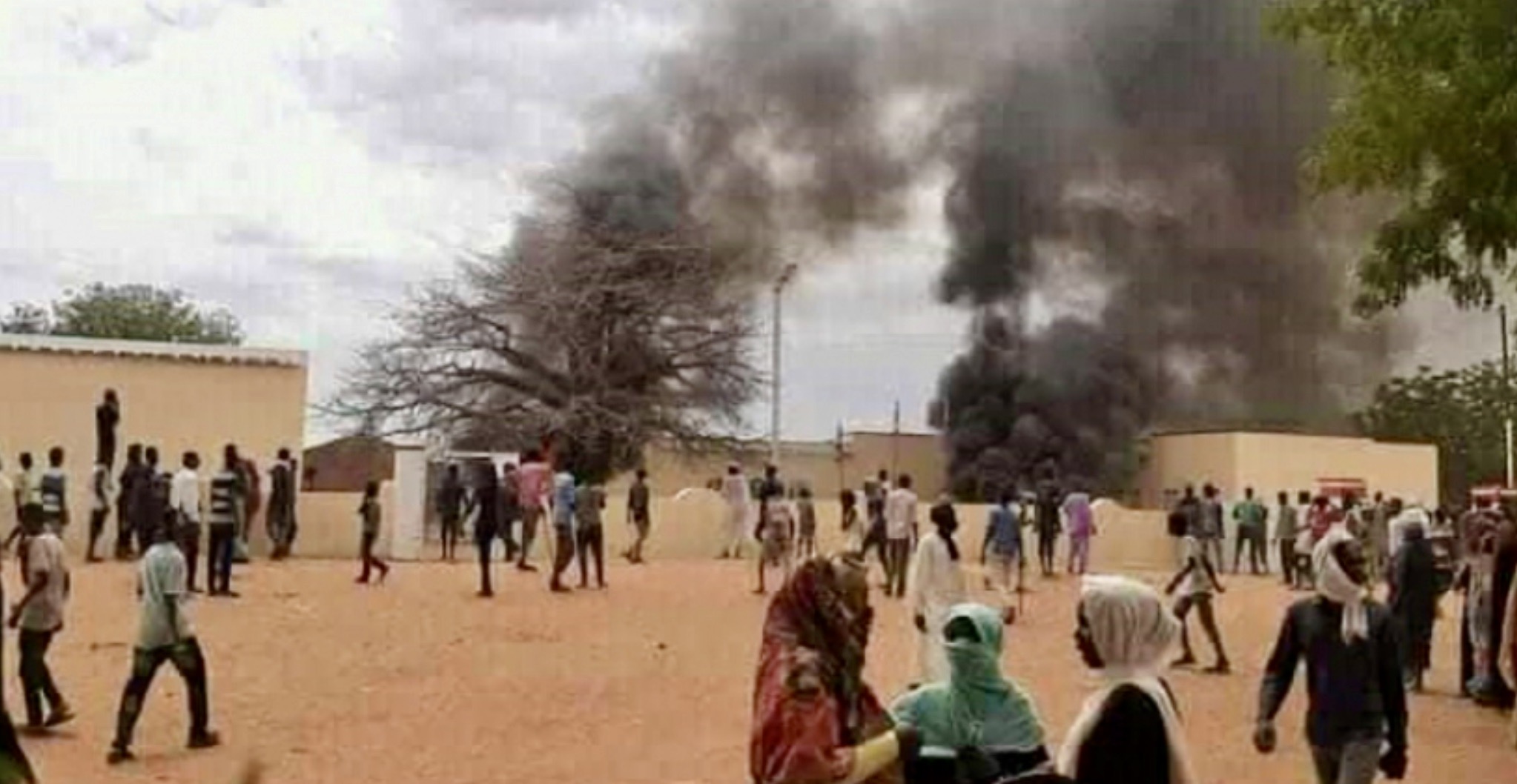West Kordofan: the battle for Babanusa
28 January 2024
Thousands of civilians have fled Babanusa town in West Kordofan State after the paramilitary Rapid Support Forces launched an attack on the town last week.
According to local sources who spoke to Ayin, at least two thousand people left Babanusa and arrived in the towns of Muglad, Umm Jak, Ghubaish, and Al-Fula. Many came with only the shirts on their back due to widespread looting from armed groups found along the road, the same sources said. Most former Babanusa residents were compelled to leave by foot due to the absence of public transport.
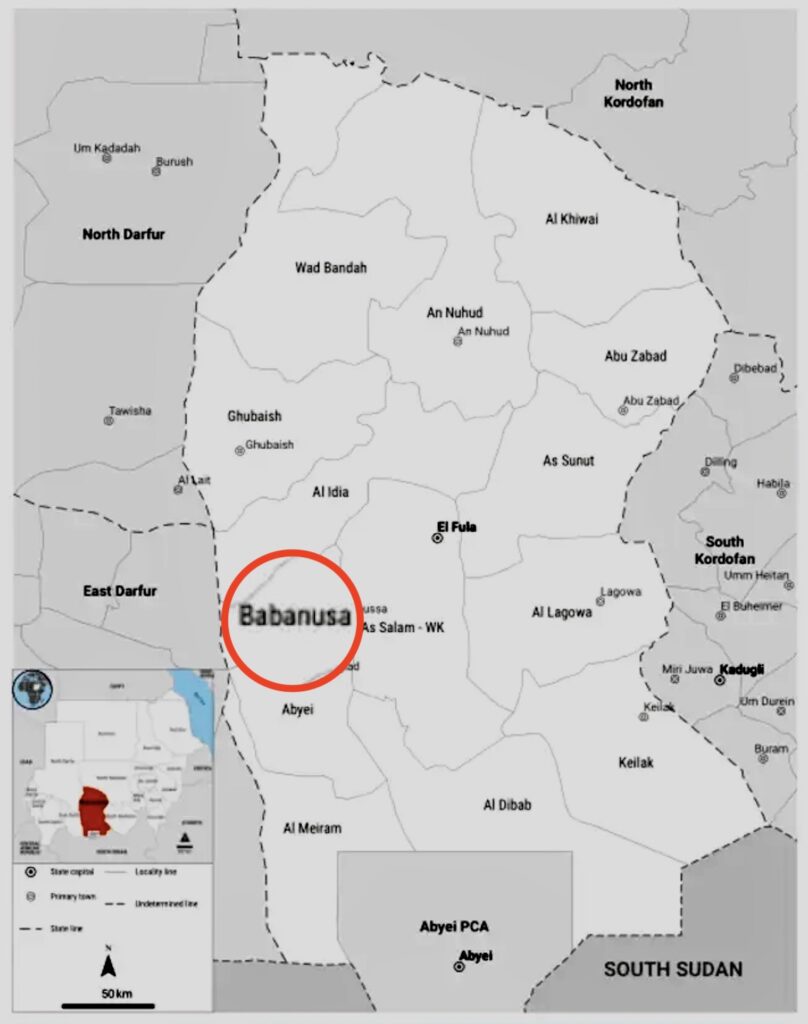
Armed clashes began on 23 January between the army and Rapid Support Forces (RSF) as the latter attempted to take over the army’s 22nd Infantry Division in the “Al-Nasr” and “Abu Ismail” neighbourhoods of Babanusa, residents said. The 22nd Infantry Division represents the largest army garrison within West Kordofan State, the same sources said. The confrontation left 32 civilians dead, according to the latest toll issued by the emergency response rooms staff, a civilian-driven voluntary effort that supports the war affected.
Since mid-April, a war domination between the army and the RSF has taken place, displacing over seven million -the largest conflict-driven displacement in the world. Battles to control the oil-rich West Kordofan State have taken place since October last year.
Up until now, despite five days of heavy shelling and airstrikes, witnesses say the military position of Banabusa remains shrouded in mystery as both warring parties have claimed a military victory. Social media pages linked to the RSF feature videos of soldiers advancing towards the army headquarters and dismantling army fortifications. This footage seems at variance to army footage of division commanders displaying RSF casualties around the army base amid claims of maintaining control of their headquarters.
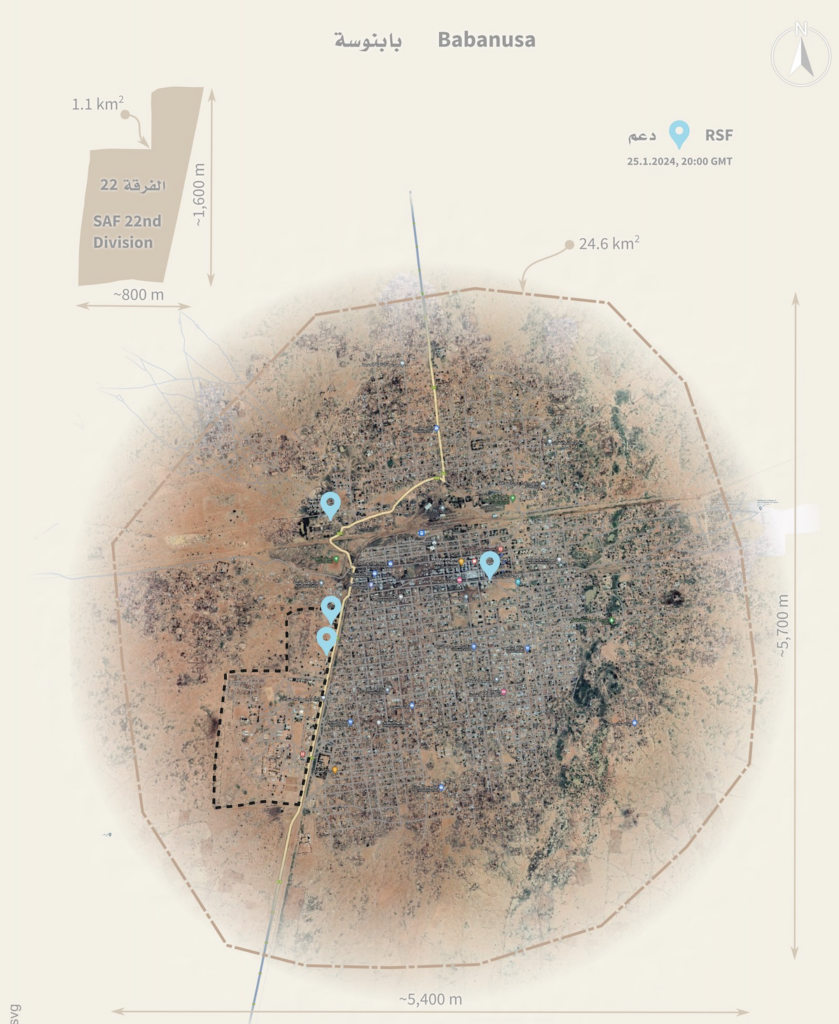
Key location
Babanusa represents a strategic geographical location, linking to the Darfur region in the west, Libya in the north, and South Sudan in the south. “Babanusa should not be neglected,” says Abdul Manan Al-Sharif, a commander of the Martyr Othman Makkawi Brigade, an armed group aligned with the army based in the state. “The disturbances in Babanusa will affect the food situation in the rest of West Kordofan State as it is a link between the north and south of the state and a major commercial center for the movement of goods coming from South Sudan, so we hope that stability will quickly return to this city.”
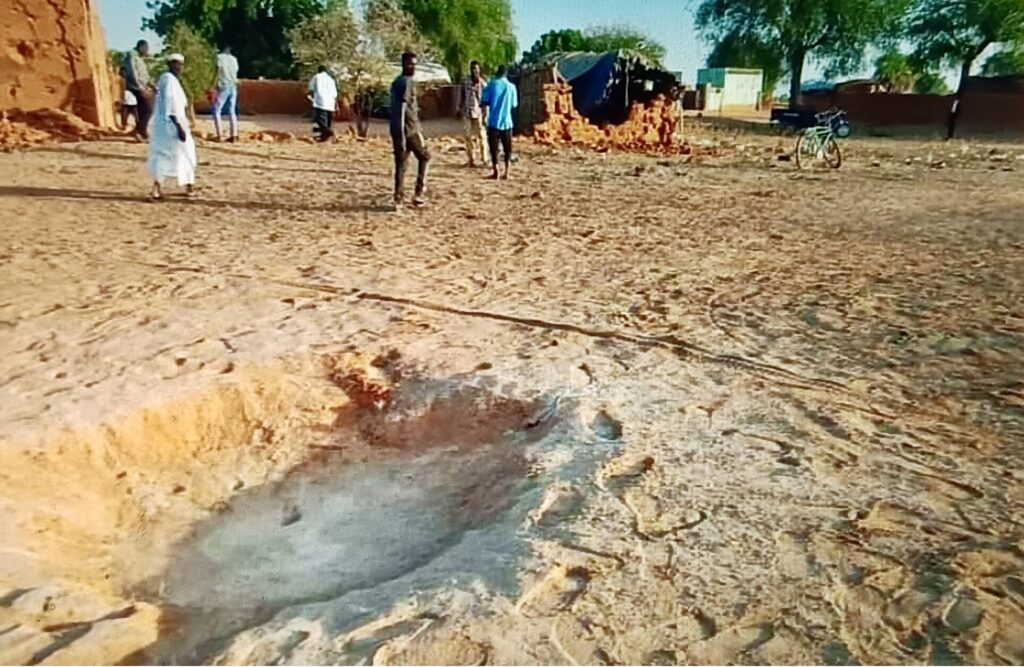
Dying in silence
“The situation in Babanusa has reached a catastrophic stage with ongoing battles between the army and the Rapid Support Forces. Explosive projectiles are landing randomly into residential neighbourhoods, leading to more civilian casualties,” says Ammar Salah al-Tijani, a member of the emergency room in Babanusa.
All hospitals, clinics, and markets are closed, including shops within residential neighbourhoods, Saleh told Ayin, leaving civilians with no access to food or medical care. He points out that citizens are finding it extremely difficult to evacuate the injured outside Babanusa to receive treatment as a result. Clashes continue and there is a complete lack of transportation.
“Yesterday some families arrived in [the town of] Muglad on foot and others on the backs of animals, covering a distance of about 45 kilometers,” he added. “Schools have been opened to shelter all those displaced from the war in different areas of the state.”
“The city witnessed widespread looting of shops and citizens’ cars,” says resident Ahmed Ali*. Armed gangs blocked anyone who attempted to leave with their vehicles and robbed them of all their possessions. “They were forced to continue their escape journey on foot –they reached the city of Muglad with difficulty,” he added.
But a worse fate befell those who remained within the town, Ali continued. Most families were forced to stay within their homes despite the bombings due to the insecurity along the roads and the dearth of public transport. With no means to leave or access to medical care, he added, many residents may be “dying in silence”.
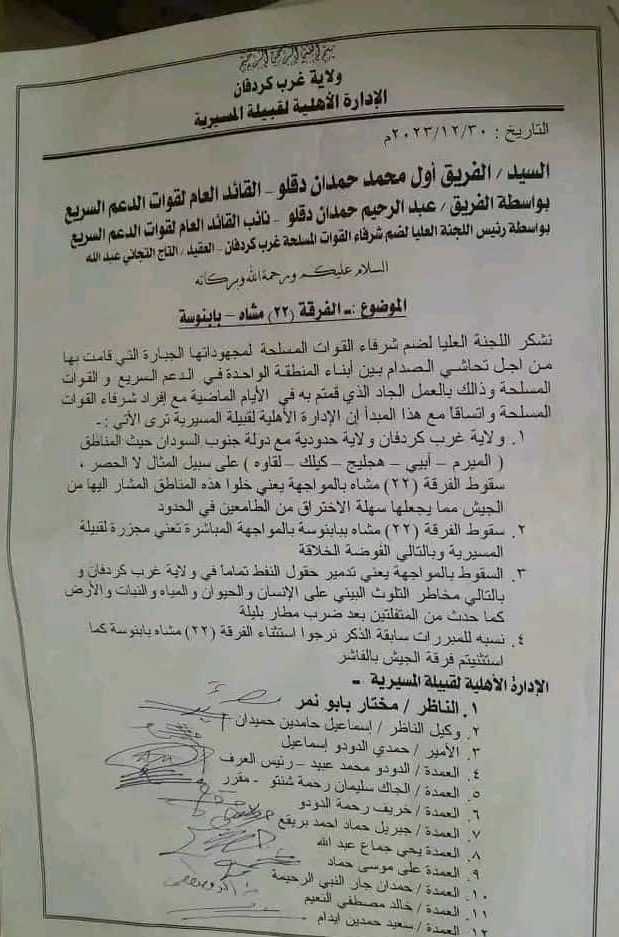
Oil in the balance
Earlier this month, the leader of the Misseriya tribe, Emir Mukhtar Babu, and 22 Misseriya leaders sent a letter to RSF commander, Lt Gen Mohamed Hamdan Dagalo (“Himmedti”), declaring their rejection of war entering their areas of influence in West Kordofan State. If the RSF overtook the 22 Infantry Division in Babanusa, the letter said, it would lead to the destruction of the area’s oilfields. “This will result in risks of environmental pollution of water, plants, and land, as happened after the bombing of the airport and the Balila oilfield,” the letter stated.
West Kordofan is considered Sudan’s number one oil state as it includes most of the country’s producing oil fields such as Heglig, Difra, Kanar, Neem, El Barasaya, and Balila.
* The name has been changed for security purposes


